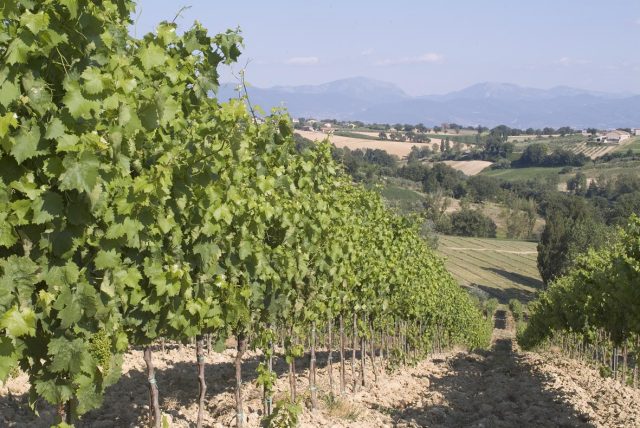This website uses cookies so that we can provide you with the best user experience possible. Cookie information is stored in your browser and performs functions such as recognising you when you return to our website and helping our team to understand which sections of the website you find most interesting and useful.
Tenuta Alzatura unveils organic Montefalco DOC Bianco
Umbria’s Tenuta Alzatura has launched the first certified organic vintage of its Aria di Casa Montefalco DOC Bianco.

The acquisition of Tenuta Alzatura almost three decades ago marked Famiglia Cecchi’s first foray out of Tuscany. The estate started its transition towards organic viticulture in 2018, and three years later it had achieved this across its 29 hectares, which contains three vineyards (Monterone, San Marco and Alzatura).
3,000 bottles of the 2021 vintage of Aria di Casa Montefalco DOC Bianco were produced, which was made from 100% Trebbiano Spolentino, from an altitude of 370 metres above sea level, and spent 10 months in barrique and six in bottle. Tasting notes include hazelnuts and wildflowers.
Famiglia Cecchi CEO Andrea Cecchi told the drinks business that the move toward organic viticulture was very much done with the environment in mind: “Organic practices have a fundamental objective – to recreate a soil rich in life, allowing vines to grow in spontaneous balance, capable of self-sustaining in harmony, throughout their long natural life cycle.”
Going organic is not always a straight forward process, with Cecchi suggesting that it necessitates “deeper and systematic control” of the vines “in order to fully understand what is happening and how they are growing and reacting”. In challenging years, the restrictions on vineyard treatments that come with organic certification can prove to be disastrous for yields.
Indeed, Tenuta Alzatura has also just released the 2023 vintage of its Cortili Montefalco DOC Bianco (also a single varietal Trebbiano Spolentino), which has been organic since 2021. Last year’s vintage was one of great difficulty across Italy, with extremes of heat and rainfall leaving many producers’ harvests hanging in the balance.
However, Cecchi claimed that while 2023 was a “tough vintage” with a cold snap in late spring, Tenuta Alzatura was “lucky” with its results: “Generally speaking, organic vignerons are aware that every few years you have to face difficult vintages that penalize the vineyards and wines. Yet we absolutely believe it is the only possible way, especially for companies like ours – with, a history and structure. It is a responsibility we have with regard to the future of our planet.”
Going with the grape
Cecchi also shared that organic viticulture is not a one-size-fits-all deal: “In Montefalco it can be easier or more difficult depending on the variety we are talking about.”
“At Tenuta Alzatura in Montefalco, we grow four grape varieties,” he explained. “For different reasons, three of them are easy to manage under organic farming: Sangiovese, Trebbiano Spoletino, Merlot. Sagrantino is certainly a more complicated vine, if organic. This, paradoxically, creates opportunities, imposing on us producers an almost maniacal attention in the vineyard, always on the lookout for its phytosanitary state.”
Sagrantino, arguably the grape most synonymous with Montefalco, is used for Tenuta Alzatura’s reds.
Trebbiano Spolentino, the variety utilised for Tenuta Alzatura’s newly-released whites, is apparently well-suited to organic methods.
“It is a variety that might be defined as easy to cultivate, with fewer problems than other varieties. In fact, it does not need much treatment or pesticides, thanks to a very good quality of growth and thick skin berries,” said Cecchi.
This white Umbrian grape has not necessarily been the most fashionable variety, but in recent decades it has enjoyed a resurgence.
“Trebbiano Spoletino has been rediscovered in the last 20 years,” he shared. “It is a late variety that produces moderately aromatic wine of great complexity and longevity. For many years these autochthonous varietals have been ‘forgotten’ due to the great focus on international grape varieties. We are very glad that we producers and consumers are returning to the search for more authentic wines and terroir expressions, with vertical and savoury characteristics.”
Related news

